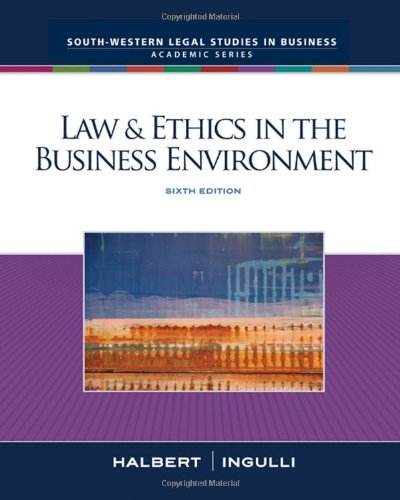Under what law did Madeira seek damages? On what basis did the company object? What reasons does
Question:
Under what law did Madeira seek damages? On what basis did the company object? What reasons does the Court give for allowing the plaintiff to claim damages despite his status as an undocumented immigrant?
Plaintiff Jose Raimundo is a citizen of Brazil who illegally entered the United States in 1998. In Brazil, Madeira had worked in a factory earning approximately $175 per month;
he had also labored briefly on his parents‘ farm without formal remuneration. In the United States, Madeira fared better, working consistently as a construction laborer, largely through the efforts of his brother, Paulo Miranda. As a supervisor for C & L, Miranda had authority to hire workers to perform that party‘s subcontracts. In the years prior to the accident here at issue, Madeira was earning approximately $15 per hour in the United States and working as many as 50 hours per week.
… Although Madeira was generally paid in cash for his work, he testified that he paid income taxes on his earnings by using a taxpayer identification number…. Madeira further stated that, sometime in 2000, he attempted to legitimize his work status by applying for a Social Security card and work permit but, at the time of trial in 2004, those applications had not yet been acted on.
On June 20, 2001, while working as a roofer for C & L, Madeira fell from the top of a building at a development site in Monroe, New York, sustaining serious injuries that required four surgeries and more than three months‘ hospitalization. At the time of trial, Madeira was still substantially disabled, particularly in walking.
Following his accident, Madeira … [sued] Affordable, the owner of the construction site, and Mountain, the development‘s general contractor, for their alleged failure to provide adequate safety equipment at the work site in violation of New York‘s “Scaffold Law.”
… The jury proceeded to find both Affordable and Mountain liable … [and] awarded Madeira $638,671.63 in total compensatory damages, consisting of $92,651.63 in incurred expenses; $46,000 for past pain and suffering; $40,020 in past lost earnings;
$230,000 for future pain and suffering (over the course of forty–two years); and $230,000 for future lost earnings (over the course of twenty–six years)…. Only the past and future lost earnings awards are at issue on this appeal. From the fact that the future lost earnings award represents far more than Madeira would likely have earned in Brazil in the specified twenty–six years, but considerably less than he could have earned in the United States over the same time, one can reasonably infer that the jury concluded that, but for his injury, Madeira would have remained and worked in the United States, but only for a limited period….
In reviewing the joint challenge raised by Affordable, Mountain, and Silva to the damages awarded Madeira … we note at the outset that no party here disputes the fact of Madeira‘s injury … or Madeira’s right to be compensated for incurred expenses and past and future pain and suffering. Instead, Affordable, Mountain, and Silva dispute only Madeira‘s recovery of lost earnings.
… Appellants submit that, if an injured undocumented worker can recover any lost earnings, it is only at the rates he could have earned in his native country….
It is well established that the states enjoy “broad authority under their police powers to regulate … employment relationship[s] to protect workers within the State.” …
This includes “the power to enact ‘laws affecting occupational health and safety.‘“ … Pursuant to this power, New York, like many states, has enacted various laws to compensate workers who sustain workplace injuries.
Most obviously, New York‘s Workers‘ Compensation Law requires employers to “pay or provide compensation [to employees] for their disability or death from injury arising out of and in the course of the employment without regard to fault as a cause of the injury.”
… This “statute was designed to provide a swift and sure source of benefits to the injured employee.” … “The price for these secure benefits is the [employee‘s] loss of the common–law tort action [against his employer] in which greater benefits might be obtained.”
Step by Step Answer:

Law And Ethics In The Business Environment
ISBN: 9780324657326
6th Edition
Authors: Terry Halbert , Elaine Ingulli





